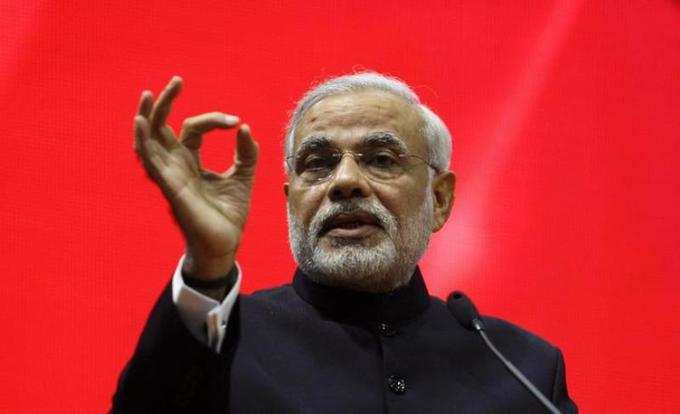
By now, it is a foregone conclusion that
Modi is among those world leaders who do not wield power, but ooze the confidence and share the energy on world stage. You must believe it if reports say Modi is third-most popular person on Internet with highest number of followers on twitter, only next to Pope and American President
As the first anniversary of his Prime Ministership draws to a close, Modi continues to rule the roost across the world. Media isn’t his most favourite place, because he believes in being a doer, and not a mere interviewee.
In a rather candid interview with none other than TIME magazine, Modi comes across as a ‘no frills’ Prime Minister who speaks of his vulnerabilities and strengths with equal confidence. That he was new to the system of federalism, and that various departments across the government structure worked like independent silos is something only Modi could have come clean on. Any other leader with a rather ‘political’ demeanor would have made an effort to appear cool and all informed about it. But, no. That isn’t Modi. He says since he did not understand it completely in the beginning, he took time to study it well and come to terms with the intricacies of a federal state. He calls it cooperative federalism.
Is there another country where a leader may have had as humble a beginning as Modi’s and yet has made efforts to study things more systematically than rely on the man Fridays around?
Perhaps it is an easy route for many politicians, but Modi does not believe in that. He would like to learn things by himself, so that he can ask right questions when needed. Be it his visit to the US, calling the nation as natural allies; his understanding of China, or issues that have become a thorn in the flesh of Srilanka, reaching out to Maoists and inviting them to have an exchange of thoughts – all along, Modi has proven he is here to stay for a long time.
At the world stage, rebranding of Modi has happened systematically and across the board. His reaching out to Nepal soon after a massive earthquake hit that land of Buddha simply earned a lot of praise across the world. PM Modi was at his best and worked swiftly at times when the tiny neighbor needed the help.
From being a Hindutva poster boy, Modi has sure come a long way on the road that leads to statesmanship. His chair may be in India, but his eyes are on the world stage. Like Shakespeare said, the world is a stage and we are all actors; Modi has mapped his next steps rather too well.
The icon that he is, today, Modi is more approachable and highly focused. He isn’t worried about exhibiting his vulnerable side, especially when it comes to talking about his humble roots. He gets emotional, smiles and regains his composure at the blink of an eye. Modi, the statesman, is about being a ‘different’ leader who plays on the world stage.
Which is why, the branding exercises have undergone a massive change. He now looms large over the horizon of world map. His trips abroad to various countries may be the butt of most jokes or criticism but Modi has a goal that is much larger than India. His ‘Sabka Saath Sabka Vikas’ is a non-sectarian approach to secularism.
President Obama’s high-profile visit, the second one during Obama’s term in office, has created some sort of deep confidence among Indian people about Modi’s potential to take the country on the right road. A few elections in states may have brought some damaging results, but that’s not for Modi to worry about. He has moved far from the politics of roots, such as Sangh, or VHP or for that matter, even BJP. Today, he is almost the single handed authority to arrive at decisions on what would work with people and the kind of messaging it would send on international arena.
In an interview with TIME magazine, Modi spoke of bilateral relations with over 16 countries that he managed to visit during the first year in office. The clarity and the alacrity with which he has spoken on various issues make him a leader truly in charge, and a leader India would be proud of.
(Image: Reuters)